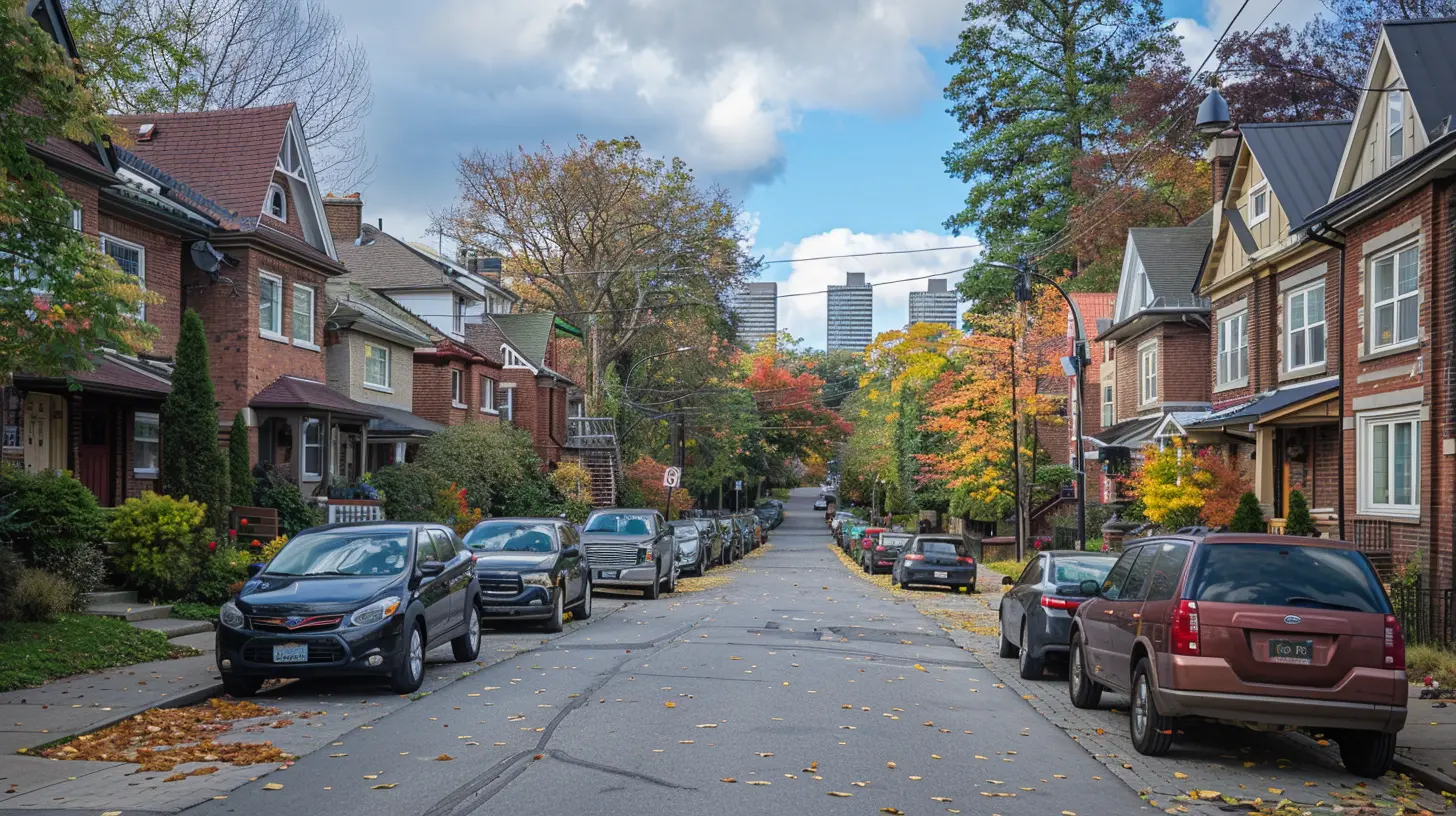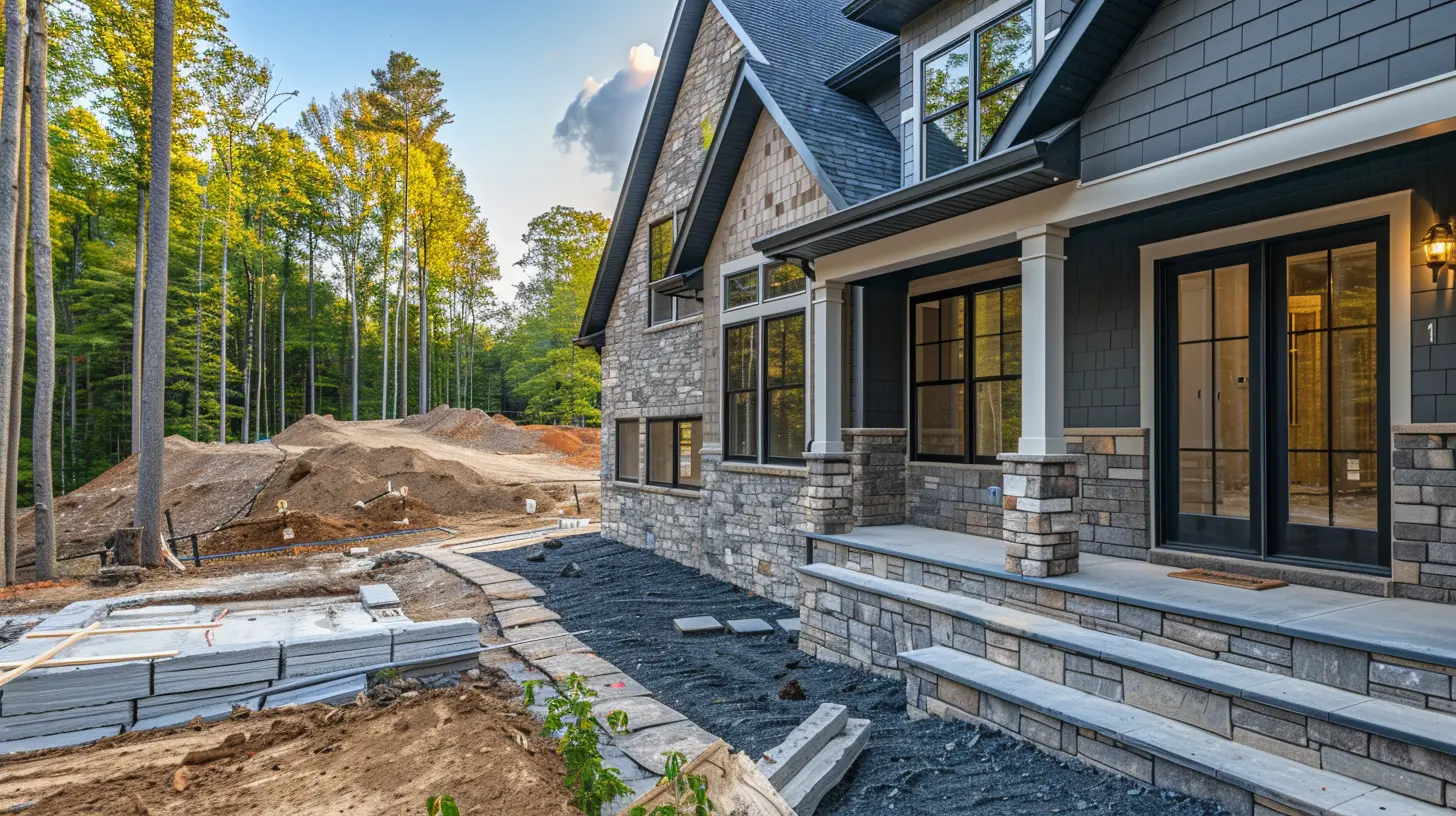The Connection Between Job Growth and Housing Prices
25 May 2025
When it comes to real estate, there are plenty of factors that influence housing prices. Interest rates, supply and demand, inflation—these all play a role. But one aspect that often gets overlooked is job growth.
Think about it: If a city is booming with new industries and employment opportunities, people will flock there for work. And when more people need places to live, home prices naturally start climbing. But is the connection really that simple? Let’s break it down and see how job growth and housing prices are intertwined.

Why Job Growth Drives Housing Prices
At its core, this relationship boils down to one basic economic principle—supply and demand. When more jobs become available in a city or region, more people want to move there. That increased demand for housing pushes prices up.But let’s go deeper. What exactly happens when job growth accelerates in an area?
1. More People, More Demand
When companies expand or new industries emerge, they bring in more workers. Whether it's a tech boom in Silicon Valley or an oil boom in Texas, new jobs attract job seekers. And those job seekers need places to live—driving up both home prices and rental costs.Take Austin, Texas, for instance. Over the last decade, the city has seen a massive influx of tech jobs. Giants like Tesla, Oracle, and Google have set up shop there, enticing thousands of workers to relocate. The result? Skyrocketing home prices. In just a few years, Austin transformed from an affordable city to one of the most expensive housing markets in the U.S.
2. Higher Wages Increase Buying Power
When job opportunities grow, salaries typically rise as well. Companies wanting to attract the best talent often offer competitive wages and benefits. With more disposable income, residents can afford to pay higher prices for homes, leading to an increase in property values.However, there's a catch. If wages don’t rise in tandem with housing prices, affordability can become a major issue. This is exactly what’s happened in some large cities—costs have outpaced wages, pricing many people out of the housing market.
3. Businesses Need Space Too
It’s not just individuals that need housing—business expansion also plays a role. When companies move into a city, they need office space, warehouses, retail locations, and more. This commercial real estate demand drives up land prices, which in turn affects residential housing costs.For example, if a tech company moves into a city and occupies prime office real estate, surrounding home values may rise simply due to the increased desirability of the area.

The Ripple Effect of Job Growth on Housing Markets
The impact of job growth on housing prices isn’t always immediate. In many cases, the process unfolds in stages.1. Initial Attraction Phase
When a major company announces relocation or expansion in a city, word spreads quickly. People start moving in, housing developers ramp up construction, and home prices may see a slow but steady increase.2. Housing Shortage and Price Spikes
If job growth continues and housing construction doesn’t keep up, prices can skyrocket. This is when affordability becomes a concern. Supply remains limited, but demand keeps growing—classic recipe for high home prices.3. Market Stabilization (Sometimes)
Eventually, either the housing supply catches up, or migration slows down. This can help stabilize prices, or even lead to minor corrections if demand drops. However, in cities with restrictive zoning laws or limited room for expansion, high prices can persist for years.
Cities With Strong Job Markets See Higher Housing Prices
Historically, cities with booming job markets often have some of the highest real estate prices. Let's look at a few examples:- San Francisco, CA – The tech explosion in Silicon Valley led to a massive job boom, pushing home prices through the roof. Even with some recent market corrections, San Francisco remains one of the most expensive real estate markets in the world.
- Seattle, WA – The presence of Amazon, Microsoft, and other tech giants has fueled job growth, making Seattle’s home prices soar as more workers move in.
- Denver, CO – The job market in Denver has been on fire in recent years, attracting new residents and driving up home prices.
In contrast, cities with sluggish job growth tend to have slower real estate markets. Areas with declining industries or economic downturns often see stagnant home prices or even price drops due to reduced demand.

When Job Growth Doesn’t Lead to Higher Housing Prices
Believe it or not, job growth doesn’t always mean skyrocketing real estate prices. In some cases, the relationship is weak or even nonexistent. Here’s why:1. Ample Housing Supply
If a city has plenty of available land and a high rate of new home construction, prices may not rise dramatically even with increased job growth. Cities like Houston, which have fewer zoning restrictions and an abundance of developable land, can absorb new residents without significant price hikes.2. Remote Work & Decentralization
In today’s digital world, remote work is reshaping housing markets. Job growth in a certain city doesn’t necessarily mean workers need to live there. Many professionals now have the flexibility to work from smaller, more affordable cities while being employed by companies in high-cost locations.3. Out-migration Trends
In some cases, even when job growth is strong, rising housing costs can push people away. If a city becomes too expensive, workers may seek employment opportunities in more affordable nearby regions. This can slow down price increases or even lead to price declines in extremely expensive locations.What This Means for Homebuyers and Investors
If you're in the market for a home or looking to invest in real estate, job growth is a key factor to consider. Here’s what you should keep in mind:- For Homebuyers: If you're looking to buy in a city with strong job growth, expect higher prices and competitive markets. Consider purchasing sooner rather than later before prices rise even further.
- For Investors: Areas with booming job markets often make solid investment choices since demand for housing is likely to stay strong. However, watch out for affordability concerns—if prices rise too fast, it could lead to market instability.
- For Renters: Rapid job growth can lead to rising rents as well. If you're renting in a hot job market, expect costs to increase over time unless new housing supply keeps up.
Final Thoughts
Job growth and housing prices go hand in hand, but the relationship isn't always straightforward. While booming job markets generally push home prices higher, other factors like available housing supply, remote work trends, and affordability challenges can influence the market.If you're planning to buy, sell, or invest in real estate, keeping an eye on job growth trends is a smart move. After all, where jobs go, people—and higher home prices—tend to follow.
all images in this post were generated using AI tools
Category:
Housing MarketAuthor:

Elsa McLaurin
Discussion
rate this article
4 comments
Evelyn O'Brien
Thank you for this insightful article! I appreciate how you highlighted the link between job growth and housing prices. It’s crucial for potential buyers and investors to understand these dynamics. Your analysis provides valuable context for making informed decisions in today’s real estate market.
June 6, 2025 at 4:56 AM

Elsa McLaurin
Thank you for your kind words! I'm glad you found the analysis helpful in understanding the dynamics of job growth and housing prices.
Valentina Bowman
This article astutely highlights the intricate relationship between job growth and housing prices. As employment opportunities increase, demand for housing typically follows, driving prices up. It's crucial for policymakers to consider this linkage when planning economic initiatives to ensure sustainable housing markets alongside job creation.
June 2, 2025 at 12:42 PM

Elsa McLaurin
Thank you for your insightful comment! I completely agree that understanding the connection between job growth and housing prices is essential for effective policymaking.
Kova Chapman
Job growth significantly influences housing prices, driving demand and increasing home values in growing markets.
May 27, 2025 at 3:49 AM

Elsa McLaurin
Absolutely, job growth stimulates demand for housing, leading to higher home values as more people seek housing in expanding markets.
Pamela Ward
This article effectively highlights the intricate relationship between job growth and housing prices. As employment opportunities increase, demand for housing rises, driving prices upward. Understanding this connection is crucial for investors and homebuyers alike, emphasizing the importance of economic indicators when assessing real estate market trends. Great insights!
May 25, 2025 at 4:52 AM

Elsa McLaurin
Thank you for your thoughtful comment! I'm glad you found the insights valuable in understanding the relationship between job growth and housing prices.



